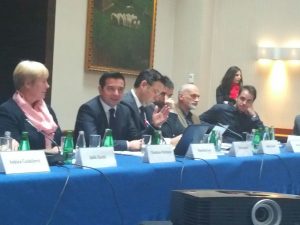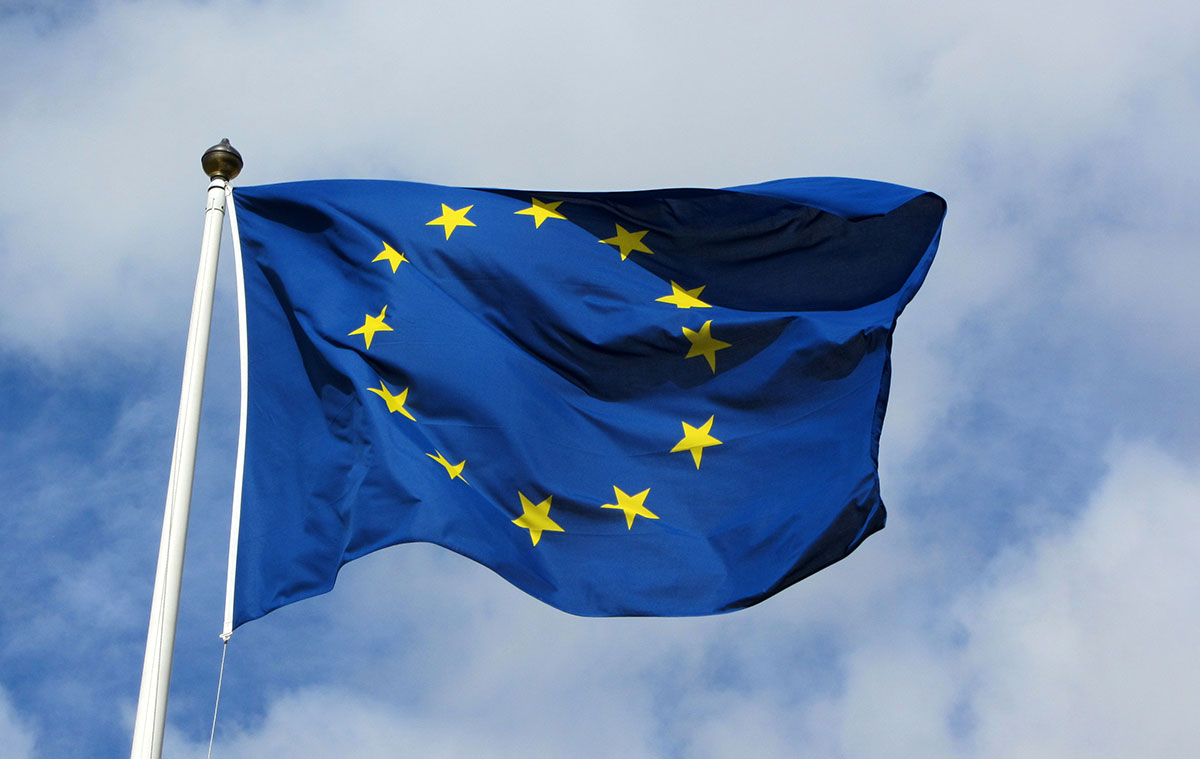by Ramadan (Dan) Ilazi, doctoral candidate at IICRR
According to a recent study by the European Policy Information Center populism is the third ideological force in European politics. A particularly concerning trend has been the growing support for the far-right groups in the Member States of the European Union. In the recent general election in Germany, the Alternative for Germany (AfD) scored 13.5% of the vote in the national election, securing seats for a right wing party in the German Bundestag for the first time in half a century. This clearly shows that populism is here to stay contrary to the believe/prediction of the President of the European Parliament, Antonio Tajani, who declared in May, that “the season of growth of populism has ended” following Emmanuel Macron’s victory in the French presidential election. Populist movements are challenging the liberal-democratic model and, more importantly, long standing norms in the EU. Populist far-right parties are exerting influence in the public discourse and national decision-making processes. This concerning trend is likely to lead to serious consequences for the European integration process.

In November 7-10 2017 I attended a conference in Sarajevo/Bosnia and Herzegovina organized by Aspen Institute Germany in cooperation with the Bosnian Ministry of Foreign Affairs and supported by the German Federal Foreign Office on “Responding to Populism, Nationalism, and Authoritarianism in the Western Balkans and Beyond” and presented a paper on how the growing support for the far-right politics is affecting the Enlargement Policy of the EU, and this article is a brief summary of the key argument of the paper.
The recent wave of populism in the EU and support for the far-right has especially targeted the European integration project. The six countries of the Western Balkans are the only countries, currently, with a real perspective for membership in the EU, while the European integration process for these countries has been incremental for a path towards reconciliation and cooperation in the aftermath of the brutal wars of the 1990s. Although nationalism has not yet been supplanted, it is nonetheless impressive to see radical and nationalist leaders from the Yugoslavian era speak with passion about the core principles of the EU. In this context, the trends of growing support for the far-right in the EU is particularly concerning for the Western Balkans.
Maintaining a credible European perspective for the Western Balkans means the whole region is set on the course of membership. This, without doubt, requires a bold vision from the EU, as was the case with the 2004 enlargement round. The President of the European Commission announced that in 2018, the Commission will publish a strategy for the successful accession of Serbia and Montenegro by 2025. However, it is not clear if this commitment from the European Commission for the Western Balkans is shared with Member States of the EU. Donald Tusk, the President of the European Council has initiated a Summit for the Western Balkans to be held in Sofia/Bulgaria on May 17th, next year which will hopefully clarify the accession process for the countries of the Western Balkans (WB) on the part of the European Union, while it is very clear that on the part of the countries in the region there is a lot of homework to be done to be ready for membership. The recent study “Forecasting Candidate States’ Compliance with EU: Accession Rules, 2017-50” by Tina Freyburg, of University of St. Gallen, shows that, besides Macedonia, other countries in the region will not be ready for accession until mid-2030s. Lack of progress with homework in the region, particularly with rule of law and economic development adds to the arguments of the sceptics and those who oppose further expansion of the EU. Considering that the EU is facing serious challenges itself with public feuds between the EU institutions and some Member States Enlargement fatigue, or the EU’s fatigue with the Balkans, it becomes difficult to challenge when the dominant opinion about the region is that governments of those respective states are not willing to do what it takes to become members.
Growing support for the far-right in the EU is adding uncertainty to the accession process. Returning to the main question that my paper considered, growing support for the far-right political movements in EU, makes the decision-making process regarding accession volatile and unpredictable. Considering accession decisions are taken by unanimity in the EU, this worrying trend puts the Western Balkans at an ambiguous and uneasy distance. We have seen how it took only one member state (The Netherlands) to block (for over a year) the prospects for closer relations between EU and Ukraine and this occurred despite the fact the country had a civil war to defend its pro-European stance. Although the Dutch senate approved the ratification of the Free Trade and Association Treaty between the EU and the Ukraine on May 30, 2017 ending the saga, one year prior to that 61.1 percent of Dutch voters had rejected the agreement. Dutch leaders demanded a kind of a guarantee that the agreement would not set Ukraine on a path to membership, and this was subsequently guaranteed at the EU summit in December 2016. In this context, it is important to consider the analysis of Macron’s proposal for a more flexible Europe and the impact for the Enlargement policy, as analysed in a recent article by Charles Grant of the Centre for European Reform. Grant argues that the plan for a more flexible EU would “revive the enlargement process…” by offering to the Western Balkans “‘membership minus’ to some applicants — meaning they would not take part in certain policies, such as free movement — opposition to enlargement would diminish.” Could this potentially be an outcome of the Sofia Summit next year?




